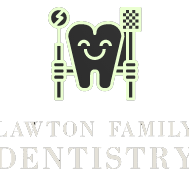WHY DO YOU GET HOLES IN YOUR TEETH?
The holes in your teeth occur as a result of the acid attack that occurs every time you eat or drink. In connection with every meal, bacteria in your mouth begin to break down sugar and carbohydrates and then form an acid that attacks the protective enamel of the teeth.
The infestation usually lasts for about half an hour after eating, before the saliva has time to neutralize the acid and repair any damage. But in cases where the saliva does not have time to stop the acid attack or the cleaning is not done properly, the acid can eventually destroy the enamel and create holes in the teeth.
Caries can affect anyone but at the same time some are more prone to attack than others. The risk of getting holes in your teeth varies, depending on how much of the harmful bacteria you have in your mouth and how good your saliva production is. The risk of getting hit is also higher as you get older.
It can also be difficult to detect cavities in the teeth in time. Often, irritation or pain does not occur until the holes have become relatively large and the attack goes too far without being remedied, the batteries can penetrate into the innermost parts of the teeth and cause severe inflammation.
This is how you protect yourself from holes in your teeth
1. Cleaning
As with all dental problems, the best way to protect yourself from cavities is to clean your teeth properly. Acid attacks are often worst in places that are difficult to reach. Therefore, it is important to make sure to clean extra thoroughly at the back of the mouth, between the teeth and next to repairs.
Fluoride is an effective remedy for caries and therefore it is important to use a toothpaste with fluoride. In addition, you can use mouthwash with fluoride and fluoride chewing gum as extra aids.

2. Eat right
As I said, acid attacks occur when you eat and therefore it is important to think about how and what you eat. It is when the bacteria break down sugar and carbohydrates that the acid is formed and therefore it is good to avoid too much sweet food or drink.
To give your saliva a chance to stop the attacks and give them time to restore their teeth, it is also important not to overeat but instead give the saliva two to three hours between meals to work.
3. Go to the dentist
Through regular visits to the dentist and dental hygienist, you can detect caries in time, before they cause large holes and inflammations that require major repairs.
Your dentist can detect in good time if you are at risk of getting holes and help you with how to prevent them by changing your diet or cleaning.
Since the risk of caries varies depending on which bacteria you have in your mouth, dentists can also find out if you are at higher risk by taking saliva samples.
4. Drymouth
Saliva is a natural protection against caries and if you suffer from dry mouth, it means that you run a greater risk of cavities in your teeth.
If you suffer from dry mouth, it is therefore a good idea to tell your dentist, who can then give you advice on measures that can increase your saliva production, if you need more frequent checks or aids such as fluoride rinse aid.
In some cases, dry mouth is due to taking a medicine that reduces saliva production. In that case, it may be a good idea to talk to your doctor if there is any alternative medicine that does not cause dry mouth.

